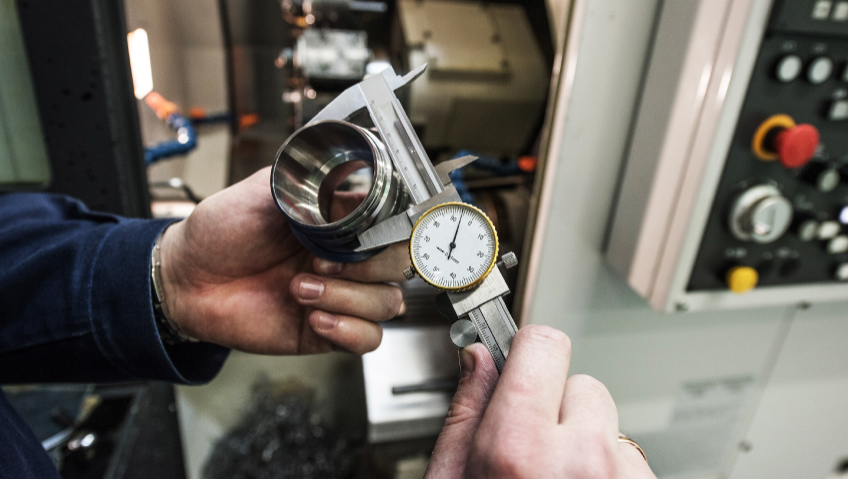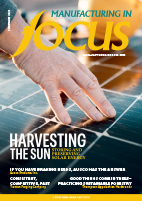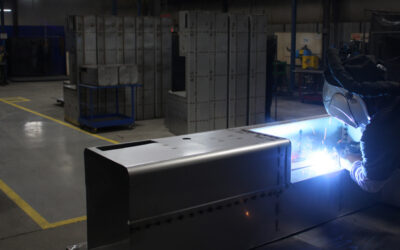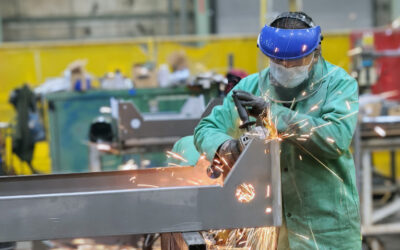Polygon International Technology was founded to take advantage of unique connections, and word spread rapidly throughout Canada. Today, Polygon is a vital link in the international supply chain, connecting clients in North America with affordable and quality raw material and parts from across China and Asia.
In today’s globalized economy, businesses are interconnected as never before. The rise of Asian economies, particularly that of China, has been well documented and has been of much interest to North American businesses. The trouble is, although Asian output is huge and efficient, that in itself has been no guarantee of quality.
Fortunately, Polygon International Technology, based in Calgary, brings unique Asian connections to ensuring that clients and OEMs across North America receive the quality products they need at budgets they can afford. The best part is that they have money back guarantee for the quality of their product, which has been enabled by their relentless effort to improve the quality management process of the mills they work with.
Like many businesses, Polygon began with a single individual. Steven Li and his wife were both aerospace engineers who, over their careers, developed relationships with many steel and aluminum mills (ie. Tubes/angles/sheets) and part fabricators across China. “They learned that there’s truth in the saying ‘you get what you pay for,’” says National Account Executive, Bill Li.
Connections, connections
The Lis decided to bring their connections when they immigrated to Canada in 1999, but China at that time had not yet joined the World Trade Organization, so the idea was stillborn. But upon China’s joining in 2001 and rising into manufacturing prominence, the international market was now open for business.
The company has grown in both staff and sophistication, with a robust quality management process and an upcoming mobile app to give Polygon’s operations greater visibility to clients.
From its Calgary headquarters, Polygon and its staff maintain regular contacts with mills and fabricators all across China and Asia, able to provide client companies with turnkey solutions guaranteed to provide high quality at an affordable cost.
Polygon’s lean business structure cuts down on response times and also increases versatility, with the company able to move nimbly from job to job with little turnaround time required.
“We can not only support our customers with what we currently supply, but also particular things, customized or standard, that they’re looking for,” Li says, elaborating on how these measures help clients cut costs.
Polygon offers a range from long steels to fasteners, CNC parts and fittings. The company and its partner mills offer both cast and forged metal parts, including in abrasive resistant Hardox steel. Polygon also offers nails utilized in paper, concrete, gutters, tile, coil and plastic. Regardless of clients’ part needs, Polygon and its partners are ready to assist clients fill their stockpiles.
Rigorous selection
The company’s ongoing relationship with Asian mills and fabricators is the product of both the experience of Polygon’s founders and a robust series of criteria the company employs. As Li points out, the large size of mills in Asian countries, particularly China, in reality proves to be more of a hindrance than a benefit to Polygon’s clients.
“As many of the mills in China are humongous in size, many of them are not really flexible to changing needs if the customer’s requirement is different to what and how they are used to producing,” he explains. As a result, Polygon prefers to deal instead with medium-sized mills that can work with the specific needs of Polygon and its clients.
Before accepting business with a mill, Polygon sends a representative team to the mill itself, to ascertain its effectiveness and working environment first-hand. Once the team is satisfied that the mill’s leadership can meet the needs of Polygon’s clients and produce the specific parts they require, they develop a strong working relationship that goes far beyond the production process.
“We’re able to set our quality management people in place to check on the product when production is finished,” Li says. Polygon’s staff, through input from its clients, can also influence the manufacturing process itself, bringing mill up to the standards the client requires.
In addition, Polygon offers to combine small quantities of multiple products into a single shipping order for its clients. This both increases flexibility and reduces inventory for customers.
The company also helps customers build their own brand by providing the highest-quality OEM service, including customized labelling and packaging. Polygon’s experienced sales team and mill network enable it to source any type of part for its clients, including rare or customized products.
Finally, all members of Polygon’s supply network are enrolled in ISO9001: 2000 quality assurance, which provides samples for all new orders and customized products, and both steel mill and special engineering testing reports reflecting clients’ specialization.
Forging relationships
Polygon’s close relationship with suppliers and fabricators, cultivated over more than seventeen years, provides the company with one unique competitive edge – punctuality. Li points out that Polygon always provide their customer with visibility to where their product is in the production process or on route, however some of their competitors who have more formal relationships with their suppliers often can’t give detailed answers to shipment status related questions.
“Because of how closely we’ve worked with the suppliers in Asia,” he says, “we’re able to provide a very robust response in a prompt time that allows them to react faster, and also gives transparency to the process.”
As an example of this close relationship, Li refers to a recent job for a major manufacturer of office furniture, which supplies large tech companies across North America. The client’s furniture required a very specific part, which previously had been sourced from Europe.
“We were able to find an option in China,” Li says, “and work closely with their manufacturing engineers to come up with a part that satisfies their stringer requirements as well as cost requirements for this steel part.” After producing a small run for the client, Polygon received a larger order and is now working with the client on a much closer basis.
Li says the client choosing Polygon is a testament to the company’s precise knowledge of both Asian manufacturers and industrial requirements. “It’s a very precise part, because of its low dimensional and surface tolerance.”
Another example highlights Polygon’s resourcefulness. A client used large quantities of reflective DOT C2 road tape, highly durable and therefore useful on Canadian roads in winter. While the client wanted to source the product from China, Li recalls how “it was not easy to find the right vendor, as the product’s adhesive material needs to stick even during minus thirty-five-degree weather.”
Polygon helped test a variety of vendors and, in the end, successfully delivered a product that both satisfied and impressed the client. Finally, Polygon was able to convince the client to lower their purchase cost for the tape significantly, demonstrating a strong trust bond between all three parties.
The power of curiosity
Ever vigilant to the highly changing nature of technology, Li comments on how Polygon’s leadership must remain curious. “We have to keep an open mind to understand what some of the potential technological disruptions are out there,” he explains.
In today’s world, it is easy to be overwhelmed through information overload, so Polygon must take a curious but cautious approach to evolving economic and technological trends such as automation and 3D printing.
But being a wholesaler and not a producer, Polygon understands it must also work with its vendors. “We try to work as closely as possible with our mills,” Li affirms, “but also understand from a macroeconomic perspective and a technological perspective where we’re going.”
An uncertain world
Li pays special attention to what is termed the VUCA world – for volatility, uncertainty, complexity and ambiguity. “In the globalized world we’re living in, a lot of things can happen and will happen, so how do we navigate this sea of uncertainty?” Li asks. “We have to constantly be disciplined to achieve what we want in terms of sales targets and other goals.”
As a China-centred company Polygon is naturally highly concerned about the ongoing Coronavirus pandemic. News from China at the time of writing suggests the number of cases is declining, so many factories and mills are reopening – good news for North American clients in need of cost-effective parts.
As Polygon approaches its twentieth year, the company is poised for new growth. “We’re hoping to diversify into as many industrial sectors as we can,” Li remarks.
Fostering opportunity
He notes that many of Polygon’s successful customers have referred others to the company, but the company has previously been unprepared to field requests for parts in unfamiliar sectors such as timber and its related sub-sectors. Now, however, the company is taking steps to meet the needs of these potential customers and tap into these new markets. In Li’s words, the company is now dealing with an embarrassment of riches.
“There are many opportunities we haven’t tapped [into] yet, because at the end of the day, while we’ve been focused on our core areas, there are many other opportunities that are up-and-coming as well.”
But as Polygon further expands its vendor list, it is sure to expand its reach in our globalized economy.













